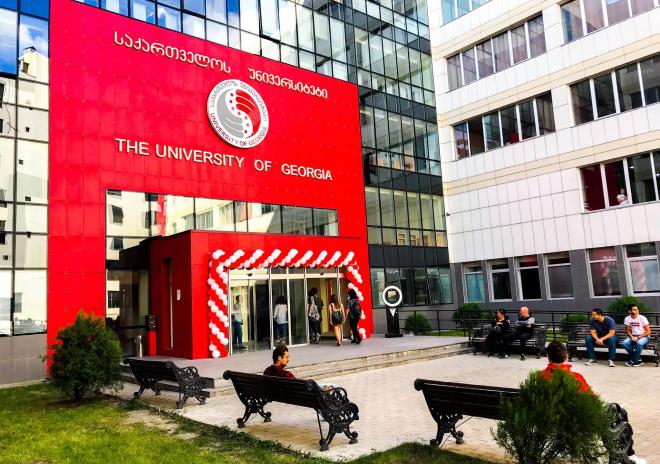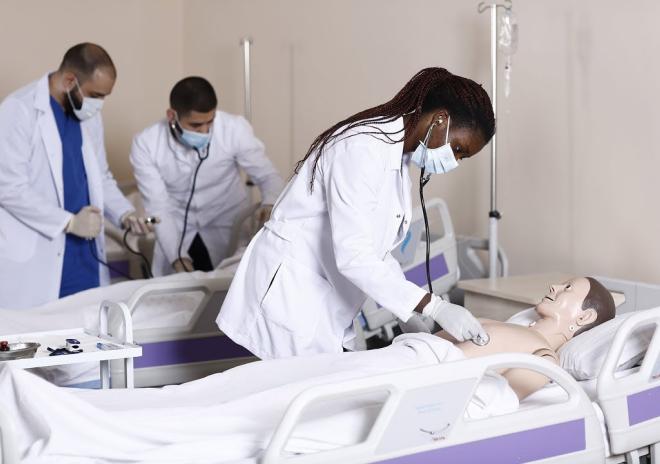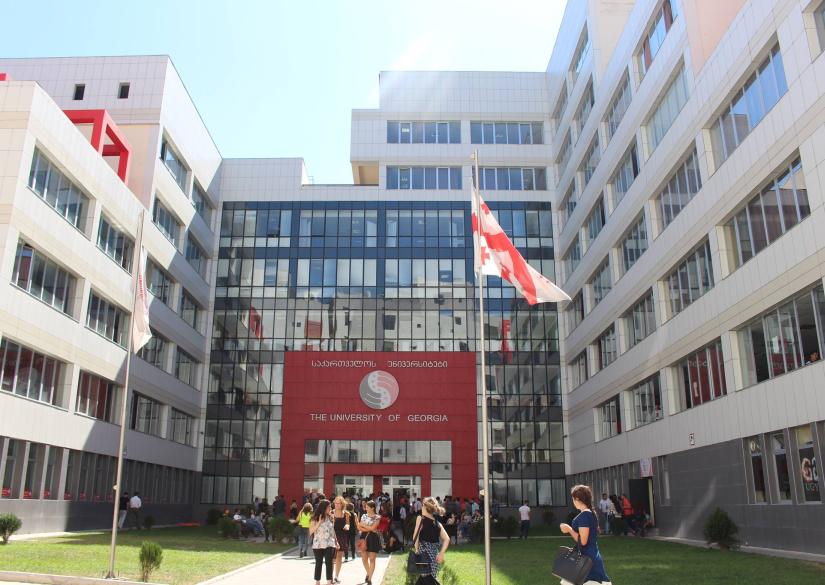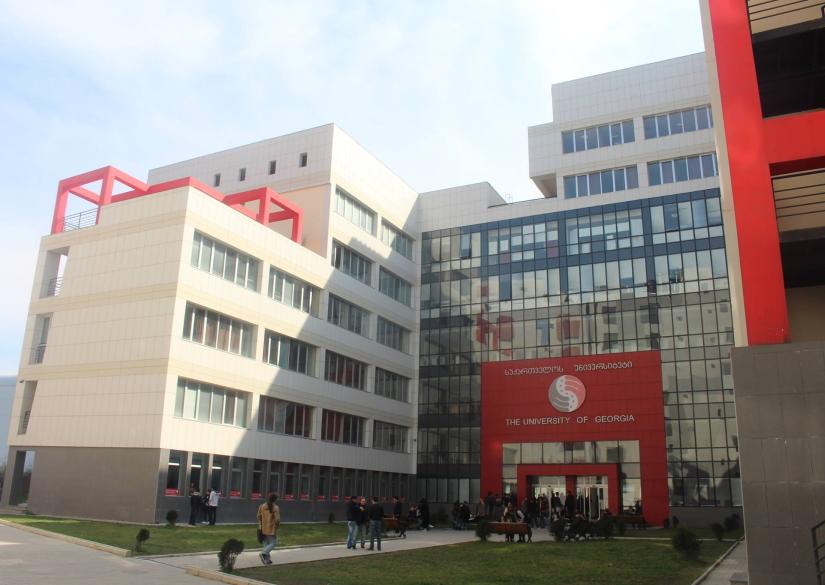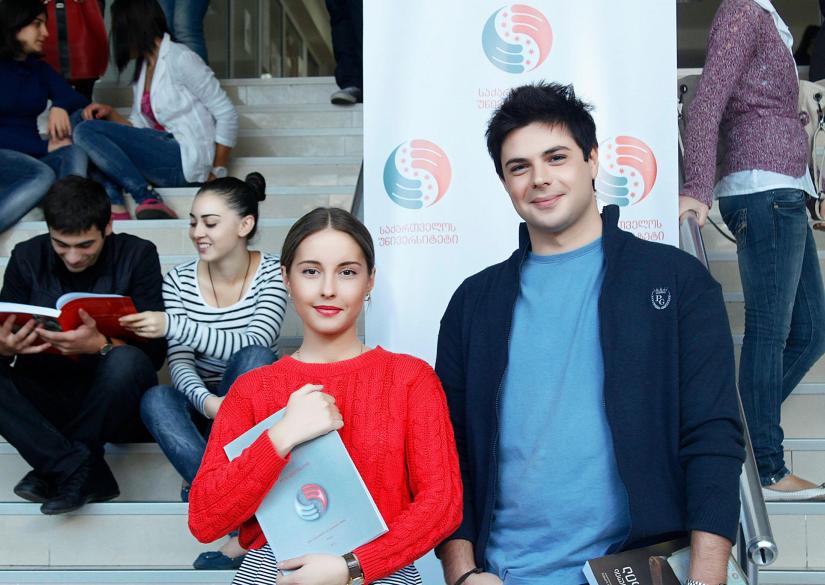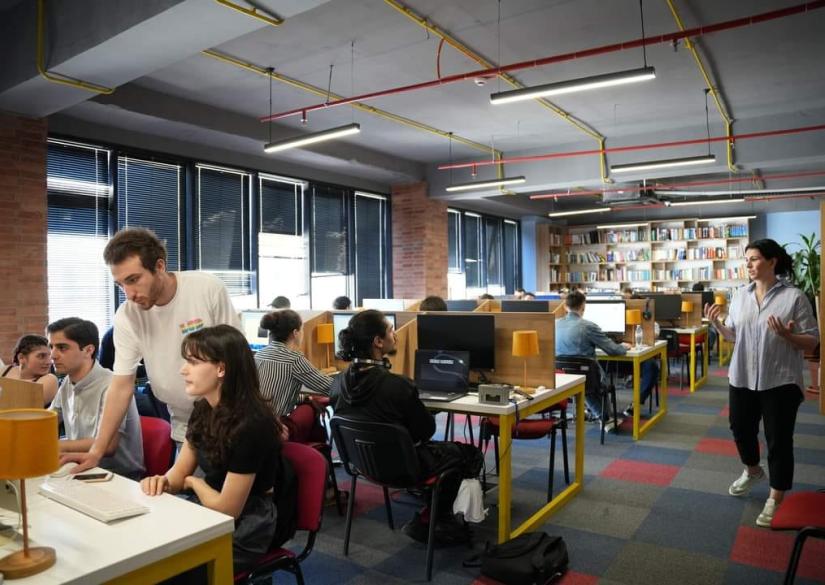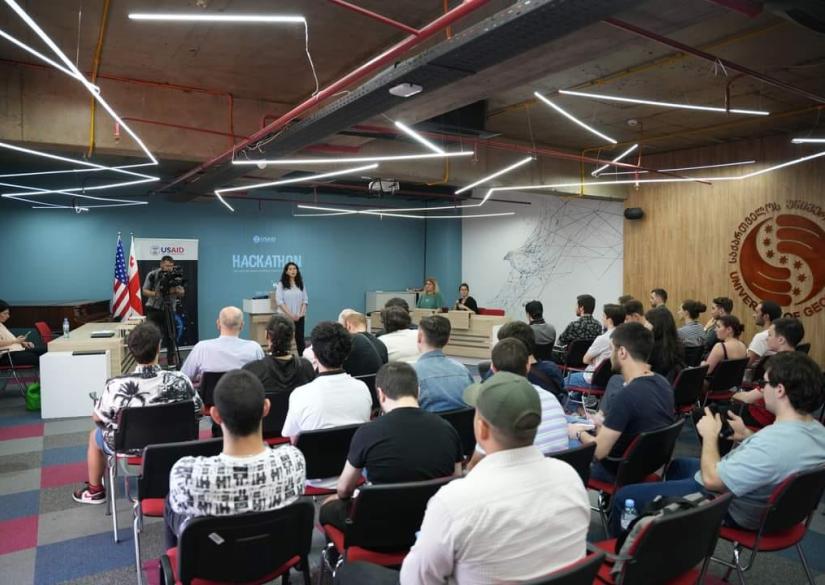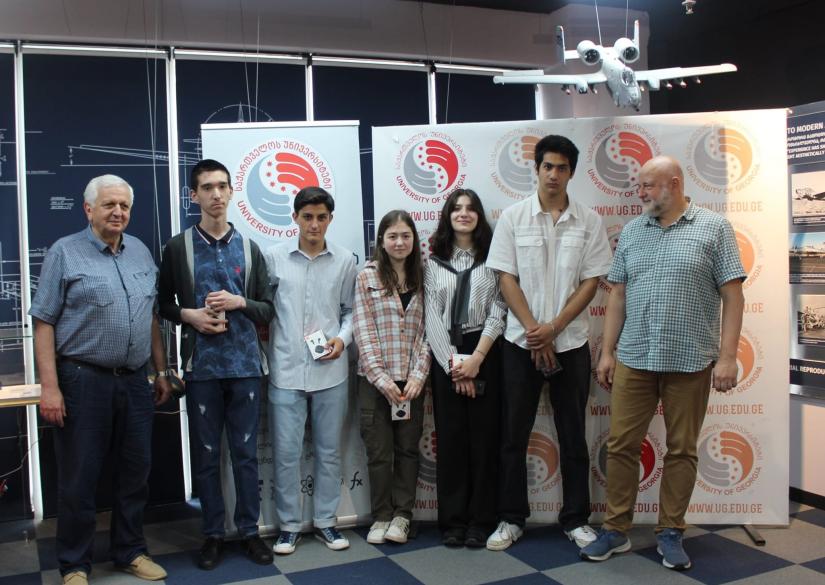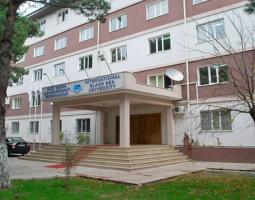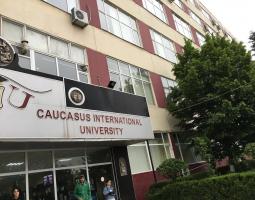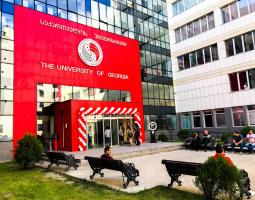University of Georgia
Programs and prices, tuition fees in University of Georgia
Bachelor
Bachelor's degree at the University of Georgia is a four-year program of study. The university offers a wide range of specializations, including humanities, natural sciences, social sciences, engineering, business, agriculture. During the training, students study compulsory subjects in their specialty, choose minor directions. Upon successful completion of the program, students receive a bachelor's degree.
Main directions:
- Computer Engineering,
- Engineering (ENG),
- Information Technology,
- Electronic and Communication Engineering,
- Computer Engineering,
- Mathematics,
- Electrical and Computer Engineering,
- Informatics,
- Law,
- Political Sciences,
- Journalism,
- Strategic Communications,
- International Relations,
- Psychology,
- Archaeology,
- Art,
- English Philology,
- History (Georgian, World),
- Georgian Philology,
- Architecture and Interior design,
- Eastern Studies,
- English Philology,
- Business Administration,
- Economics,
- Tourism.
Master
Master's degree at the University of Georgia is an advanced study program offered after obtaining a bachelor's degree. Master's programs usually require one to two years.
The university offers master's programs in various fields – business, education, healthcare, earth sciences, engineering, humanities, social sciences, and others. Master's degree programs usually include the study of specialized courses, research, and the writing of a master's thesis.
Main directions:
- Entrepreneurship and Innovation,
- Information Technology,
- Information Technology (English only),
- Blockchain — Distributed Information Systems,
- Management of Information Technology,
- Pure and Applied Mathematics,
- Applied sciences,
- International Business Law Program,
- Law and Economics,
- Security Studies,
- Global Governance,
- Public Relations and Advertising,
- International Relations,
- Applied psychology,
- Archaeology,
- Georgian Philology,
- English Philology (English only),
- Education Administration (English only),
- Cultural and Social Anthropology,
- History of Georgia,
- English Philology (GEO).
Doctorate
The Doctoral degree at the University of Georgia is the highest level of education offered by the university, which requires a serious research approach and usually takes three to five years. The University of Georgia offers doctoral programs in a variety of fields, including sciences, humanities, engineering, education, business, and others. During the doctoral program, students are engaged in research under the guidance of supervisors, take specialized courses.
Main directions:
- Mathematics,
- Physic,
- Computer Science,
- Law studies,
- Masscommunication,
- Political Sciences,
- History,
- English Philology,
- Business Administration (GEO),
- Public Health.
Description of University of Georgia
- Founded: 1785,
- Location: Tbilisi, Georgia,
- Language: Georgian and English,
- Type: combined,
- Type of institution: university,
- Students age: from 18 years old.
The University of Georgia is one of the leading educational institutions in Georgia, providing students with a wide range of educational programs and opportunities for academic and professional development. The university, founded in 1785, has a prestigious ranking and recognition both locally and internationally.
Educational process
The educational process is based on modern methods and active interaction between students and teachers. Classes are held in the form of lectures and seminars, where students gain theoretical knowledge and discuss current problems and issues. As part of the academic process, students are encouraged to participate in project work that helps develop their practical skills and promotes independent research.
The University of Georgia cooperates with various companies and organizations, providing students with the opportunity to practice and internship.
Faculties and colleges
- Faculty of Arts – arts, music, theater and creative directions,
- Faculty of Business – Programs in Business, Finance, Marketing, Management and Entrepreneurship,
- Faculty of Sciences – includes courses in natural sciences, biology, chemistry, physics, mathematics and scientific fields,
- Faculty of Medicine – provides education and in medicine, dentistry and other health professions,
- Faculty of Law – offers law programs and prepares students for the practice of law and careers in law.
Scientific achievements
The university conducts research in the field of biomedicine, developing new methods of treatment and diagnosis of various diseases. The University of Georgia supports research and development of new technologies, including computer science, artificial intelligence, robotics and other high-tech areas.
Things to know about
- The university was founded in 1785 and since then has become one of the leading educational institutions in Georgia,
- The University of Georgia has international recognition and accreditation, is a member of various academic research associations and organizations,
- The education is conducted in several languages, including Georgian, English and Russian: this allows students from different countries to receive a quality education.
Accommodation, meals, prices
The university offers comfortable residences: it is a convenient and affordable accommodation that allows students to be closer to the academic environment and various activities on campus.
Activities University of Georgia
The University of Georgia supports many student clubs and organizations dedicated to various interests and hobbies: students can join sports teams, academic clubs, public organizations and other groups.
Advantages
- University of Georgia ranks high in international rankings, is among the Top 200 best universities in the field of sciences, arts and humanities,
- The university attracts outstanding professors who are experts in their fields of expertise,
- The University of Georgia offers more than 140 study programs, including bachelor's, master's and doctoral programs.
Facilities and equipment at University of Georgia
The Georgian university has modern educational and scientific institutions that provide an academic and scientific environment for students and teachers.
The university library is one of the largest in the region, contains extensive collections of printed and electronic materials and provides access to databases and journals.
The University of Georgia also has modern laboratories equipped with advanced technology and tools:
- Computer Laboratory of the School of Business, Economics and Management,
- Dental simulator,
- Simulators "Pharmacy",
- Reavita UG – Clinic for Physical Medicine and Rehabilitation,
- Simulation Hospital,
- Laboratories of anatomy, biochemistry and microbiology,
- Language Lab,
- Archaeological Museum.
Admission dates and extra charges
The University of Georgia operates according to the trimester system, usually the academic year is divided into autumn, spring and summer terms. The administrative fee with visa support is $250, without it is $150.
Enrolment process
- Provide official academic transcripts from previous educational institutions, letters of recommendation from teachers or educational institutions,
- Notarize documents,
- Take standardized tests (SAT or ACT).
Enrolment statistics
- In 2021, the University of Georgia accepted about 55% of applications for admission,
- The average score for the SAT sections is approximately 1300-1400,
- The average ACT score is approximately 28-32.
Perspectives
Graduates have good prospects after graduation, many are successfully employed in various industries, including business, science, education, health care and law. Some graduates choose to continue their education by enrolling in a master's or doctoral program at prestigious educational institutions in the United States and other countries abroad.
Entry requirements, how to apply, what is required to enrol
- Official graduation certificate or equivalent certificate of education,
- Official academic transcripts that confirm the passage of certain subjects and academic achievements,
- Receipt of payment of state duty,
- Video interview recording,
- E-mail address and phone number,
- Official photo of the applicant 3x4,
- Standardized test scores – SAT or ACT (sometimes),
- Letters of recommendation from teachers, lecturers, or employers who are familiar with the student's academic and professional work,
- Essay or motivation letter.
Scholarships University of Georgia
Several types of scholarships are offered:
- Erasmus+ program,
- Exchange Programs in Turkey,
- Erasmus Mundus.
Institution on the map
Residence permits, citizenship and other services
- Guardianship services during the studies
- Student supervision
Review about University of Georgia
Recommendations on when to apply
| Language courses, schools and children's language camps | Primary and secondary education - private schools | Preparation programmes for entering universities - higher education | Higher education (after completing accredited programs A-level, IB, High School) - Bachelor, Master, MBA |
| - we recommend to apply 6-9 months before the start of the course (some camps and schools offer discounts for early booking or for lengthy study programs) - there are some very popular and high demand children's camps, where the applications need to be submitted 1 year in advance (in particular Switzerland , Great Britain , USA , Canada , Austria) | - we recommend to apply one year before the start of the training program, - some schools have a specific time frame (September-November - please specify an individual school) - some schools require tests in several stages (UKISET, internal tests of the school: English, mathematics, logics, subjects, interview, some require a personal visit) | - we recommend to apply one year before the start of the program, - for Foundation and Pathway programs, IELTS and TOEFL certificates are usually required, respectively | - recommended submission one year before the start of the program, - the deadline normally closes in January, for TOP HEIs and, as a rule, in March in other universities - for a bachelor, a Foundation or Pathway preparatory program a completed A-level, IB, High School + IELTS / TOEFL are required - for Masters you need a graduated higher education, in some cases you need a pre-Masters program - MBA requires completed higher education, work experience preferably at least 2-3 years, etc. |


